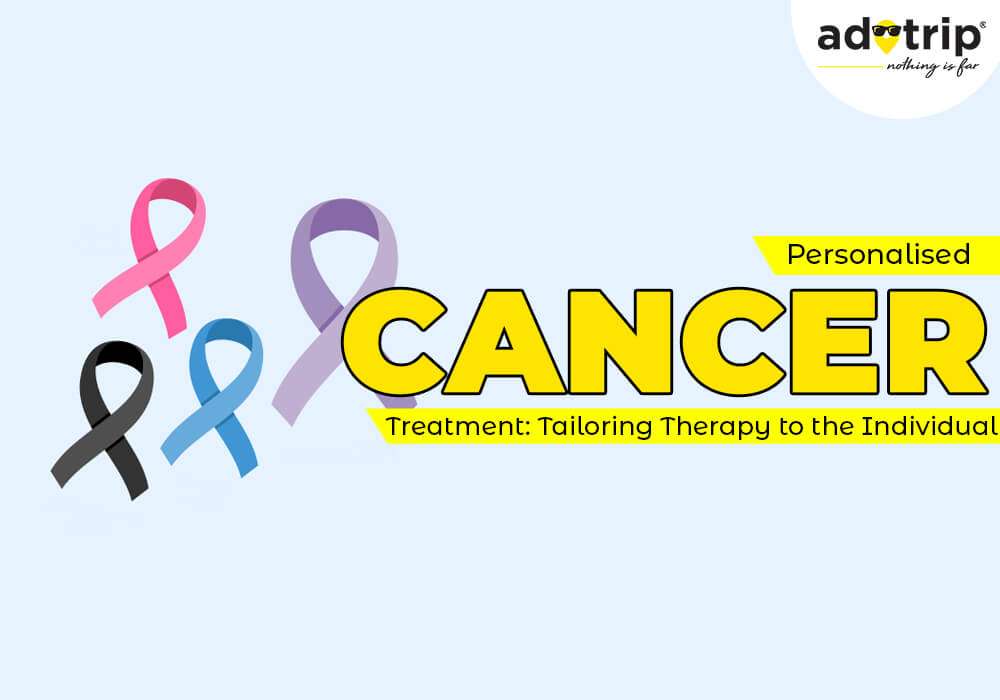
Medical science has significantly developed. Now, even serious health issues like cancer are entirely curable. This progress can reach new heights with personalised cancer treatment. Though chemotherapy/surgery is the most suggested treatment option for different cancer types, there are some consequences. Hence, personalised medicine in oncology introduces more effective ways to deal with cancer. It is a medical care approach prepared according to the genetics and abnormal changes in the patient's tumour.
Thus, it helps get deeper insights into cellular growth (genes and tumour) as cancer can affect/involve your genes. The patient gets a more personalised treatment, which further reduces side effects. Experts also call it "precision medicine". Some examples of personalised medicine are targeting HER2 (breast cancer) and ALK (non-small-cell lung cancer).
With India leading as a top-notch medical service provider, many patients and their families visit the country for the best cancer treatment.
Earlier, the doctor used to suggest treatment according to the cancer type. That means all lung cancer patients will get the same treatment. But the treatment response was different for every patient. The reason was the molecular difference in the genes and tumours of every patient. Therefore, the doctors opted for this treatment approach. Though standard treatments are still recommended, there is a chance to personalise cancer treatment with information on genetics.
It works by destroying cells that abnormally divide themselves. It is the prime property of cancerous cells. But sometimes, it can destroy healthy cells, resulting in side effects like a low blood count. A combination of drugs (chemotherapeutic agents) is used for this treatment to improve effectiveness and reduce the chances of single-drug resistance. Your doctor may evaluate your progress with CT scans, MRIs, etc. If it seems ineffective, then the oncologist can personalise cancer treatment with specific genetic biomarkers. These are genetic or protein changes present in tumour cells. It will help understand the tumour, treatment response, and recurrence risk. Biomarkers can help in predicting the treatment’s outcome. For example, ERCC1 in tumours refers to a positive result of cisplatin chemotherapy.
This treatment option uses radiation energy to destroy the genes of cancerous cells. Thereafter, these cells aren’t able to divide themselves and gradually die. It stops the further progression of the tumour. It also affects healthy cells in some cases, leading to various side effects. This scenario creates a need to minimise the damage to healthy cells. Under personalised medicine, the doctor chooses the right radiation therapy approach while targeting the affected part with the proper dosage. For instance, while exposing the rectum to radiation, your doctor may try to protect the surrounding organs, like the bladder.
This treatment damages cancer cells by targeting their survival, replication, and secondary growth points. Many drugs are involved in this approach. The combination of drugs helps in understanding the side effects. Within the scope of personalised medicine, the doctor can change the drugs or treatment schedule to alleviate side effects.
This popular cancer treatment uses lab or body-produced substances that help boost the immune system. It helps the body fight and destroys cancer cells. Immunotherapy is used to treat various cancers. It can be used alone or in combination with chemotherapy and other cancer treatments.
Get a better understanding of the unique form of cancer and its relation to your genes - It is about studying your genes and the cellular details of the malignant tumour. This approach helps in knowing the potential risks of cancer development, the unique cancer type (like a subtype of lung cancer), and how the body will react to the cancer treatment.
You may need to give one or more samples of your tissues and tumours. With tissue and blood samples, the doctor can list the characteristics of the tumour. It will help them find exciting facts that can be important in treatment selection. The patients should ensure that their biological samples are safe in a biobank. It will help the new patients find a better way to treat themselves. Moreover, it is not a guarantee to cure the patient. Treatment may not work if there are other unknown cellular changes,
A new futuristic approach to cancer treatment is in the form of personalised medicine. It is a way to study genetics and take informed decisions. The present standard treatments remain the best way to treat cancer. But the data received after the genetics study can help enhance effectiveness and quality of life. The research is still ongoing but can help treat many cancer types. So discuss this approach with your doctor before selecting the treatment plan.
Adotrip helps you with a hassle-free experience during your medical treatment in India. From information, hospital tie-ups, and consultation to flight booking, medical visa assistance, boarding and lodging and more are available under one roof!




